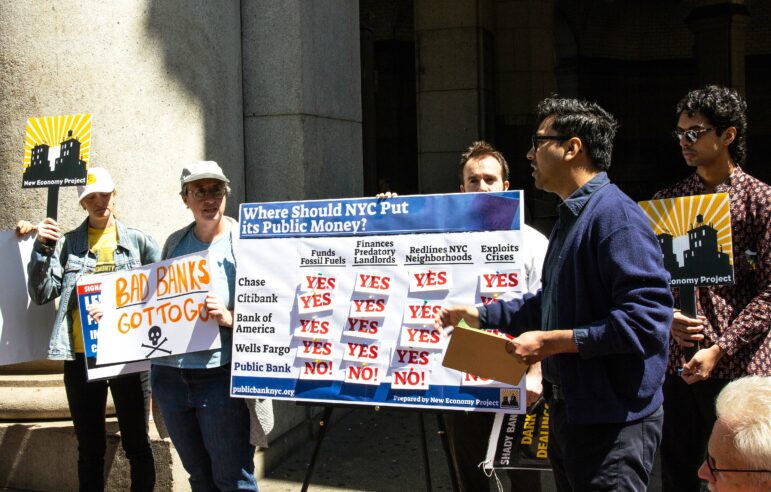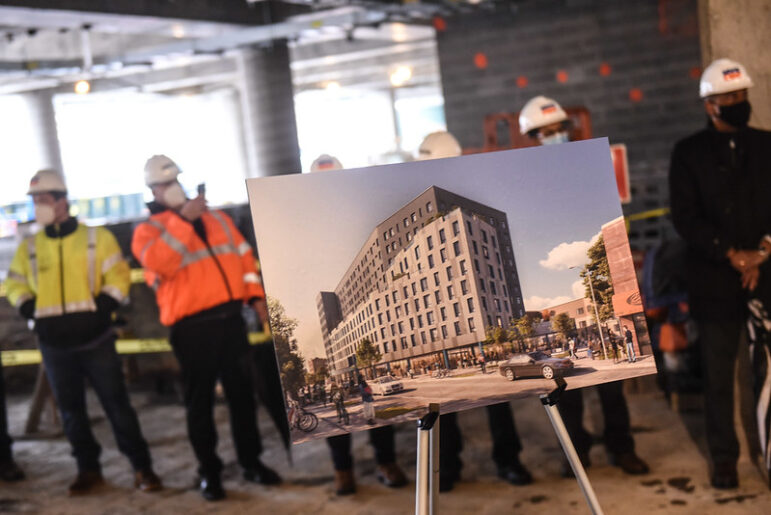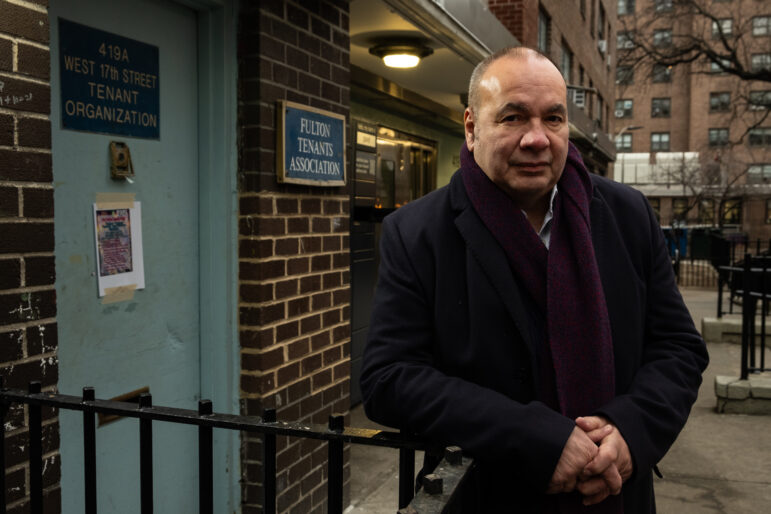The two dozen inspectors and supervisors in a bland meeting room at Newark’s City Hall are crisply uniformed and uniformly attentive as they look toward an inspector standing behind a podium, squirming.
He’s been up there for nearly an hour, being put through a building inspector’s version of hell. “Why didn’t you cite the owner of 50-60 Columbia Street for [not providing] the required off-street parking?” demands Pablo Fonseca, Newark’s code enforcement manager.
The officer replies that the building has been illegally converted, and has not been registered as a living space. But, his boss quickly points out, even illegal tenants have the legal right to parking in Newark.
“Well, it was different under the previous management,” mutters the officer. “Absolutely,” Fonseca agrees. “I do things differently.”
Welcome to Newark’s Code Stat, modeled after the NYPD’s data tracking system. The year-old program allows the Newark Department of Neighborhood and Recreational Services to keep a close eye on both housing violations and the performance of the men and women who document them. Each officer is supposed to drive through his or her entire sector every week, looking for problems. The city’s 33 inspectors and their supervisors appear every two weeks in front of a troika of managers to get grilled over problems like garbage-strewn vacant lots and dangerously dilapidated buildings.
All drama aside, the point of this exercise is “accountability,” insists Fonseca. The department’s main enforcement strategy is “clean-and-lien”–fixing broken sidewalks, cleaning up debris and putting liens on neglected buildings. But the number of fines has also soared: from about 2,300 in 1991 to 25,000 in 1998.
Community development groups praise the project for keeping the streets cleaner. “I have seen a strong and consistent direction that has reduced garbage at the curb and encouraged owners to keep their properties clean,” says Mike Farley, executive director of the Unified Vailsburg Services Organization, a group involved in property rehabilitation and community organizing. Even reps from the officers’ union give the program qualified praise. “There have been some positive changes,” admits AFSCME local president Rodney Smith. “The [changes] get right to the heart of the problems, such as licensing and illegal conversions. Work doesn’t sit around the way it used to.”
But Newark’s tenants are unimpressed. Of four tenant organizations contacted by City Limits, none had heard of the program. More importantly, tenants didn’t think that their complaints are resolved any more quickly.
“I haven’t noticed any difference,” says Frank Hutchins of the HUD Tenants Coalition, a citywide tenants group. Hutchins says maintenance–especially with elevators–is a serious problem in these buildings, and the tenants depend on the inspectors. “It’s a very big issue. Code enforcement is the one place we turn to get repairs made.”








